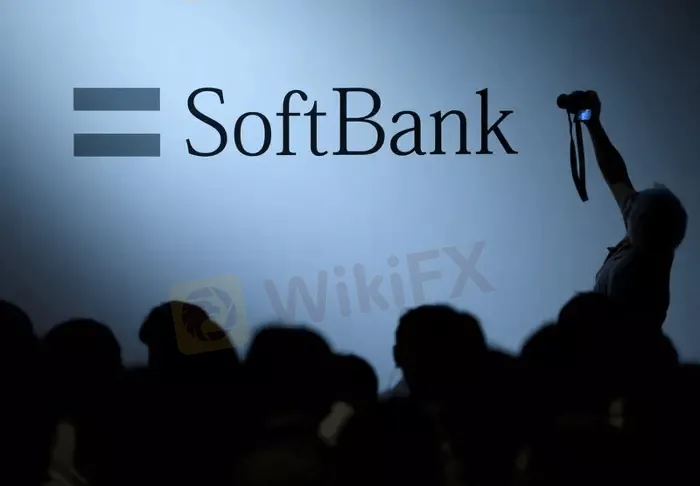简体中文
繁體中文
English
Pусский
日本語
ภาษาไทย
Tiếng Việt
Bahasa Indonesia
Español
हिन्दी
Filippiiniläinen
Français
Deutsch
Português
Türkçe
한국어
العربية
SoftBank posts record $23 billion net loss on Vision Fund pain
Abstract:SoftBank Group Corp on Monday posted a 3.16 trillion yen ($23.37 billion) net loss in the April-June quarter.

SoftBank Group Corp unveiled a $23 billion quarterly net loss on Monday, its biggest ever, as a market sell-off upended tech stocks and shredded valuations at its sprawling Vision Fund unit.
The pain in the April-June quarter comes fresh after the closely watched Vision Fund posted a record $26 billion loss in May, when rising interest rates and political instability disrupted global markets, and could test investor willingness to stomach further big losses.
SoftBank founder and CEO Masayoshi Son has already pledged to tighten investing criteria and preserve cash to ride out the downturn and on Monday he signalled cuts to headcount at the Vision Fund, saying there were no “sacred areas”.
“The world is in great confusion,” Son told a briefing after the release of the results, remarking on the tech sell-off. But he acknowledged the company had invested in more start-ups than it should have and that valuations had been “in a bubble”.
SoftBank also said it had authorised a share repurchase programme worth up to 400 billion yen, something that could assuage investors.
Overall, the sliding portfolio pushed SoftBank to a 3.16 trillion yen ($23.4 billion) net loss in the latest quarter – its largest loss ever. That compared with profit of 761.5 billion yen in the same period a year earlier.
The Vision Fund unit saw a $23.1 billion hit in value.
Listed investments that suffered a fall in value included robotics firm AutoStore Holdings Ltd and artificial intelligence firm SenseTime Group Inc.
SoftBank said it wrote down the value of unlisted assets across its two Vision Funds by 1.14 trillion yen. Analysts have said writedowns of these private assets were unlikely to reflect the extent of current market weakness.
To raise cash, SoftBank has exited companies including ridehailer Uber Technologies and home-selling platform Opendoor Technologies, for a total gain of $5.6 billion.
SoftBank sold Uber at an average share price of $41.47, compared to the Friday closing price of $32.01.
The second Vision Funds stakes in 269 firms were worth $37.2 billion at end-June, compared with an acquisition cost of $48.2 billion.
Plunging initial public offering volumes and market scepticism towards money-losing startups have squeezed an important source of capital for SoftBank, which hopes to list chip designer Arm following the collapse of a sale to Nvidia.
SoftBank hasnt been the only casualty of the tech sell-off.
Hedge fund Tiger Global, which competes with “unicorn hunter” Son on deals, saw its flagship fund fall 50% in the first half of the year after it underestimated the impact of surging inflation on markets.
Berkshire Hathaway booked a $44 billion quarterly loss on its investments and derivatives, with Chief Executive Warren Buffett urging investors to ignore the fluctuations.

Disclaimer:
The views in this article only represent the author's personal views, and do not constitute investment advice on this platform. This platform does not guarantee the accuracy, completeness and timeliness of the information in the article, and will not be liable for any loss caused by the use of or reliance on the information in the article.
Read more

Doo Financial Expands Regulatory Reach with Offshore Licenses in BVI and Cayman Islands
According to the report, Doo Group, a prominent Singapore-based online brokerage firm, has strengthened its global presence by securing new offshore licenses for its brokerage brand, Doo Financial. The company recently announced that entities under the Doo Financial umbrella have been granted licenses by two key offshore regulatory bodies: the British Virgin Islands Financial Services Commission (BVI FSC) and the Cayman Islands Monetary Authority (CIMA).

Russia to Fully Ban Crypto Mining in 10 Regions Starting January 1, 2025
Starting from January 1, 2025, Russia will implement a comprehensive ban on cryptocurrency mining in 10 regions for a period of six years. The ban will remain in effect until March 15, 2031.

Why is there so much exposure against PrimeX Capital?
In recent months, PrimeX Capital, a Forex and CFD broker established in 2022, has become a subject of concern in the trading community. However, despite these enticing features, the broker's reputation has been severely tarnished by multiple complaints and a troubling lack of regulatory oversight.

The Hidden Checklist: Five Unconventional Steps to Vet Your Broker
Forex broker scams continue to evolve, employing new tactics to appear credible and mislead unsuspecting traders. Identifying these fraudulent schemes requires vigilance and strategies beyond the usual advice. Here are five effective methods to help traders assess the legitimacy of a forex broker and avoid potential pitfalls.
WikiFX Broker
Latest News
ASIC Sues Binance Australia Derivatives for Misclassifying Retail Clients
WikiFX Review: Is FxPro Reliable?
Malaysian-Thai Fraud Syndicate Dismantled, Millions in Losses Reported
Trading frauds topped the list of scams in India- Report Reveals
AIMS Broker Review
The Hidden Checklist: Five Unconventional Steps to Vet Your Broker
Russia to Fully Ban Crypto Mining in 10 Regions Starting January 1, 2025
YAMARKETS' Jingle Bells Christmas Offer!
Why is there so much exposure against PrimeX Capital?
Doo Financial Expands Regulatory Reach with Offshore Licenses in BVI and Cayman Islands
Currency Calculator


